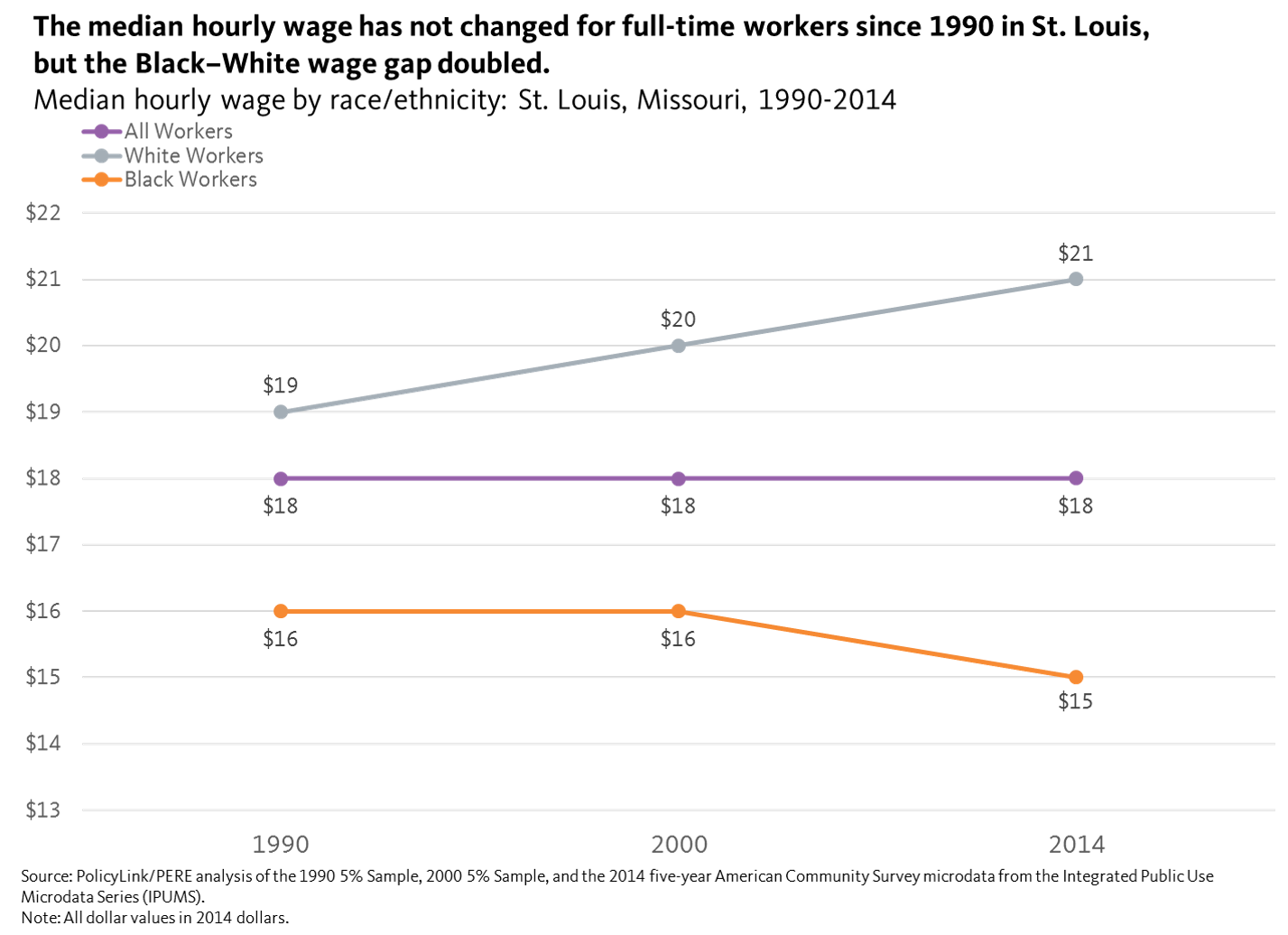Chart of the Week: Missouri Rolls Back St. Louis Minimum Wage Hike
To add equity data to the national dialogue about growth and prosperity, every week the National Equity Atlas team posts a new chart from the Equity Atlas related to current events and issues.
Today, minimum-wage workers in St. Louis make $10/hour. This is only after a two-year battle in the courts in which the Missouri Supreme Court ultimately upheld the City of St. Louis’s authority to raise its minimum wage following a suit brought by business owners against a 2015 city ordinance. But come August 28, their wages will drop to $7.70/hour thanks to the state government – costing the average full-time, minimum-wage worker in St. Louis about $4,600 per year in lost pay.
Income inequality in the city was higher than the nation in 1990 and has only increased since. Rising inequality does not only hurt low- and middle-wage workers; it also acts as a drag on economic growth for the whole region. More equitable economies, on the other hand, are more resilient and experience more sustained economic growth. Still, Missouri Governor Eric Greitens claimed, without evidence, that the city ordinance “will take money out of people’s pockets,” while allowing a bill that will literally take money out of worker’s paychecks to become law. As State Senator Jamilah Nasheed, whose district includes St. Louis, points out: “Missouri taxpayers shell out $2.4 billion per year in public assistance to make up for the fact that big companies like McDonald’s and Walmart don’t pay their workers enough to survive. Governor [Eric] Greitens and Republican legislators in Jefferson City may be content to let taxpayers subsidize poverty [to] pay for big business, but St. Louis is choosing a different path. One way or another, we are going to save this raise.”
This week’s chart shows how even though there has been no real increase in the median hourly wage since 1990, the Black-White wage gap as doubled. While the median wage captures workers in the middle of the wage distribution, research has shown that minimum wage increases produce “ripple effects” or increases in those earning above the minimum wage. More importantly, a living wage for a family consisting of one adult and one child in St. Louis is over $20/hour, but the median wage has remained $18/hour since 1990. At the same time, the Black-White wage gap has doubled. White workers experienced a $2/hour increase in median wages from 1990 to 2014 while the Black median wage declined $1/hour. Despite stagnant wage growth among all workers, the state of Missouri is still working to suppress wages for low-wage workers.

In an equitable city and state, wages would reflect differences in education, training, experience, as well as pay scales across occupations and industries, but would not vary systematically by race or gender. But National Equity Atlas data shows that full-time White workers have a higher median wage than Black workers in St. Louis and Missouri at nearly every education level. Importantly, this law will hurt all low-wage workers throughout the state, taking hard-earned money of out people’s paychecks in order to deepen the pockets of large businesses.
To see how median wages have changed in your city or state, visit the National Equity Atlas and type in your city or state. Download and share the chart on social media using #equitydata.